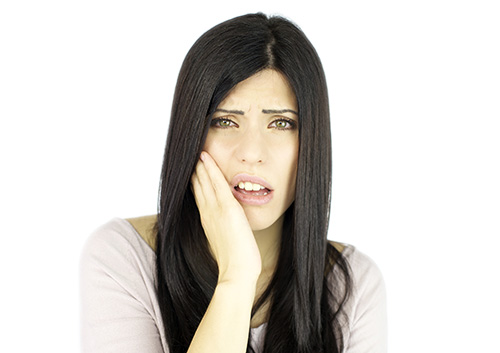January 22nd, 2019

Nobody likes a dry mouth. It is an uncomfortable and sometimes oddly unexplainable sensation that most people like to avoid. It is not a condition that automatically sends you into a panic about your health, however, a dry mouth can be a bother and something you certainly want to change if possible. So, if you find yourself in the unpleasant position of having a dry mouth, here is what you can do.
Chew Sugar-free Gum: Chewing sugar-free gum will stimulate saliva in your mouth. The chewing motion of your jaw and teeth should take care of at least some of your dry mouth problem.
Suck on Sugar-free Candy: Similarly to chewing sugar free gum, if you suck on sugar free candy it should create more saliva in your mouth and moisturize it in the process.
Cut out the Caffeine:Caffeine can contribute to a dry mouth so by limiting, or eliminating your intake all together, you may find that your dry mouth is no more.
Stop Using Tobacco Products: Tobacco is another cause of dry mouth. Whether it is smokeless tobacco products or cigarettes, if you stop using them your dry mouth will likely improve. And not to forget, these products are exceedingly bad for your oral health to begin with, so you will be doing your mouth a favor even more so.
Drink Lots of Water: It may seem obvious, but drinking lots of water will likely improve your dry mouth. This is because dry mouth is usually a sign of dehydration, so plenty of fluids will surely help.
Dry mouth can be unpleasant, but it is often easily solved by either drinking more water, or trying one of the previously mentioned techniques. If the problem still persists you can always visit our West Bend, WI office to see Dr. Carl Meyers. More often than not, doing one of the above will leave your mouth more moisturized than it was previously, and hopefully it will be long-lasting as well.
January 15th, 2019

Temporomandibular joint disorders (TMD) describe a set of conditions that involve trouble with your jaw and face muscles. They result from a problem in the temporomandibular joint (TMJ), which is a hinge that connects the temporal bones, in your skull in front of each ear, to your jaw. The joint enables you to talk, yawn, and chew by letting your mouth move.
TMD can be very painful and interfere with functions such as eating and speaking. This what to watch for and how to try to prevent TMD.
Risk Factors for TMD
You are at higher risk for TMD if you are a women than if you are male. The disorder is most common among adults between the ages of 20 and 40 years. Other risk factors for TMJ disorders include the following.
- Arthritis in the area, making movement more difficult
- Excessive tooth grinding, because it increases stress on the joint
- General stress, which can lead you to clench your teeth and strain facial muscles
Symptoms of TMD
Symptoms of TMD can last for just a short while, or for several years. Seeing Dr. Carl Meyers is important if your symptoms make it impossible for you to eat regularly or if you have unbearable pain or discomfort. The following symptoms can occur on both or one side of your face.
- Aching or very tired facial muscles
- Jaws that are fixed open or shut without you being able to unlock them
- Grating or popping sounds when you chew or close or open your mouth
- Pain in the entire area, including the mouth, jaw, neck, or shoulders, that comes on when you chew or yawn
Preventing TMD
You can try to prevent TMD by focusing on reducing risk factors. If you grind your teeth at night, ask Dr. Carl Meyers about wearing a mouthguard. If you are overly stressed, look into ways to better manage your stress and relax your muscles. Another strategy for trying to prevent the development of TMD is to avoid chewing gum, since that puts stress on your jaw.
If you have questions about TMD, don’t hesitate to contact our West Bend, WI office.
January 8th, 2019

A study conducted in Washington State in 2004 and another conducted in Madrid, Spain in 2012 both reported findings that support a direct relationship between parents’ dental fear and their child’s fear of the dentist.
The Washington study examined dental fear among 421 children ages 0.8 to 12.8 years old. They were patients at 21 different private pediatric dental practices in western Washington state. The Spanish study observed 183 children between the ages of seven and 12 as well as their parents.
The Washington study used responses from both parents and the Dental Sub-scale of the Child Fear Survey Schedule. The survey consisted of 15 questions, which invited answers based on the child’s level of fear. The scale was one to five: one meant the child wasn’t afraid at all, and five indicated he or she was terrified. The maximum possible points (based on the greatest fear) was 75.
Spanish researchers found a direct connection between parental dental fear levels and those among their kids. The most important new discovery from the Madrid study was that the greater the fear a father had of going to the dentist, the higher the level of fear among the other family members.
Parents, but especially fathers, who feared dental procedures appeared to pass those fears along to every member of the family. Parents can still have some control over fear levels in their children. It is best not to express your own concerns in front of kids; instead, explain why going to the dentist is important.
Dr. Carl Meyers and our team work hard to make your child’s visit at our West Bend, WI office as comfortable as possible. We understand some patients may be more fearful than others, and will do our best to help ease your child’s anxiety.
January 1st, 2019

The beginning of a new year is the perfect opportunity for a fresh start for you and your smile. At Pioneer Dental, a brighter smile is quick and easy!
Given the latest in whitening technology, whiter teeth are only an appointment away. Teeth whitening is a safe, quick, and inexpensive way to create the dream smile you’ve always desired. We can offer a safe method that corrects tooth discolorations that may have been caused by staining, aging, or chemical effects.
So, start the new year off right and get a whiter smile today! Give us a call at our convenient West Bend, WI office to schedule an appointment!







